- /
- Destinations
- /
- Sudan
- /
- Hidden Treasures
This adventure tour of Sudan traces the footsteps of ancient civilisations, from the sprawling desert city of Khartoum, to the stunning pyramids at Meroe. Travel along the Nile Valley and unearth the incredible ancient sites whilst sampling the unique Nubian culture of this desert region.
We start this incredible tour in the sprawling capital city of Khartoum, with its many museums, tombs and markets. There is time to explore the intriguing souks in Omdurman, before we cross the Nubian Desert seeking out the lost pyramids and temples of the Nile Valley. We explore the famous Meroe Pyramids, which are the most concentrated pyramid complex in the Nile valley. We'll experience a real dessert camp with the luxury of a private veranda to enjoy the wonderful views of the pyramids. We'll also visit the ancient remains at Mussawarat and Naga. Continuing along the Nile Valley to Karima to explore the many temples, tombs and pyramids around Jebel Barkal. We also visit Old Dongola to see the Coptic Christian churches, and take a boat ride to the Pyramids of Nuri. Returning to Khartoum, where the tour ends with some free time in Khartoum.
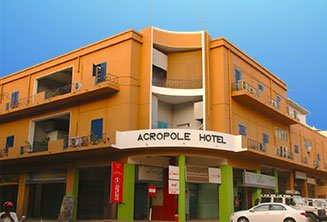
The Acropole Hotel is a friendly, family run hotel, run by the same Greek family for over 60 years. It is centrally located, very clean, with great food, and is very well known and regarded throughout Khartoum.
All rooms are air-conditioned with direct dial telphone and large balconies. The Acropole Hotel restaurant offers an international cuisine with Greek and Italian specialities.
Other facilities and services include a TV room with satellite TV, same day laundry service, internet and email, complimentary newspapers, taxi service, business centre, doctor on call, hair dryer and a wide selection of books in the library.
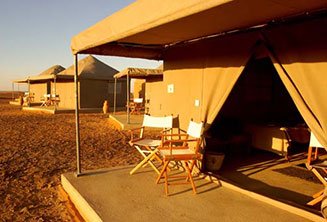
The Meroe camp is located in Bagarwyia, about 230 km north of Khartoum, overlooking the amazing Royal Necropolis where there are a large number of Pyramids.
Meroe was the southern capital of the Kushite Kingdom, or Napata/Meroitic Kingdom, that spanned the period c. 800 BC. - c. 350 AD. The culture of Meroe developed from the XXV Dynasty of the Ancient Egypt, and its importance gradually increased starting the so called "Meroitic Period". The Kingdom of Meroe is also known for the role of the Queens called "Candaces" who were as strong as their royal husbands as we can well see in the inscriptions found in the many temples and Kiosks.
The Meroe Camp has 22 twin bedded tents set on a concrete base. The room size is 4 x 4 mt. and inside there are also small bedside tables with a reading light, drawers and mirror; outside there is shady veranda with 2 chairs for reading or simply relaxing overlooking the open desert before the pyramids.
Every tent has its own private restroom and shower which is located in a separate hut at the back of the tent. There is an indoor restaurant with a large paved area around to be able to eat outside in the pleasant spring evenings. There is also a veranda on the top of the restaurant to watch the sunset over the pyramids or to simply relax talking with the other guests of the camp before or after dinner.
The camp has a power generator that is working until 10.30-11 pm, after that we ensure peace and quite to the guests and if they need lights they must have their own electric torch.
The Camp is open from October to the end of April; it is supervised by an Italian manager and well trained Sudanese staff. With this permanent facility, this dry region of extraordinary archaeological interest and beautiful landscapes become accessible even to those reluctant to sacrifice their comfort.
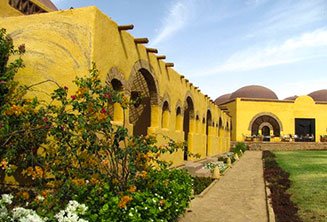
Karima is a small town located on the west bank of the Nile which developed at the foot of the holy mountain "Jebel Barkal" that in the ancient time was known as Napata, the capital of the Kingdom of Kush. The long history of Napata dates back to the 1.075 b.C. and it raised to glory ruling over the Lower and Upper Egypt, during the XXV Black Pharaohs Dynasty (750 - 653 b.C.); the many archaeological sites in the area are the physical remains of this rich history.
At the foot of the Jebel Barkal, there is our Nubian Rest House, a charming boutique hotel with 22 A/C twin rooms (all with private facilities), a delicious restaurant and a pleasant veranda where to sit in the cool starry nights. The rest house is tastefully decorated, starting from the original Nubian door where the guests enter the property, to the open air lobby, to the living room where to rest or read a book. The rooms have 2 large single beds all with private bathroom (with shower, sink, mirror, wc and a bidet) and a small veranda in front which opens up to a green grass area. Care for details is our passion, and it is easy to understand this when you see the Rest House.
The hotel is opened all year round and it is supervised by an Italian manager (between October and April) together with well-trained Sudanese staff.
50 km north of Karima there is the Merowe dam which was completed in April 2008 and now forms a very large artificial lake.
Our tours are designed to include all that you need to enjoy a really special time in the destination you're visiting. However, we do also offer some extra options to complement the tour and add some additional sightseeing or activities, or some extra time at either end of the tour.
All accommodation based options (e.g. Single supplements, extra nights, cruise upgrades) should be booked and paid for in advance so that we can make the appropriate arrangements. Other options may either be booked and paid for in advance or while you are on the tour, though we recommend booking in advance to ensure there are no issues with availability.
Many options are priced the same throughout the year, but some may incur single or high season supplements - full details are given on the tour reservation form or on request.
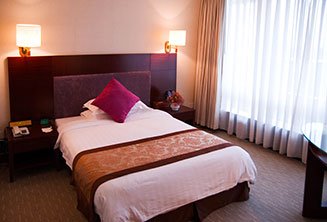
This option books a single room in all the accommodation throughout the tour. If you are a single traveller and would be happy to share a room, let us know and we will see if we can pair you up with another single traveller of the same sex. If a room share is not available when you book then we will add the single room supplement to your booking and it will be payable with your balance payment unless we have arranged a room share for you by then. If a room share is arranged after you have paid the supplement then we will refund it to you. Room shares are arranged in order of booking.
Note: The price shown is a low season price. Slightly higher prices may apply during high and peak seasons - the exact price for your dates will be shown on the online booking form and is always available on request.
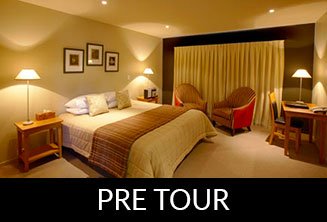
This option adds an extra day to the start of your tour, staying in the same hotel as the main tour itself (subject to availability). Your airport arrival transfer is still included. Prices shown are per person and based on two people sharing.
Note: Single room and peak season supplements apply.
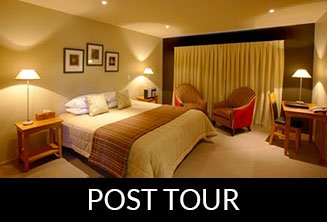
This option adds a full night in the hotel at the end of your tour on Day 9 or on future days, staying in the same hotel as the main tour itself (the standard tour price covers day-use only in the hotel up go around 11pm). Your airport departure transfer is still included. Prices shown are per person and based on two people sharing.
Note: Single room and peak season supplements apply.
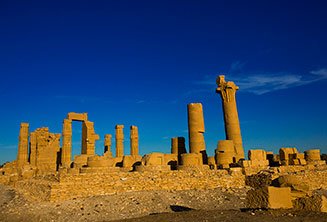
This 3-day extension visit Wawa and included tours to the Temple of Soleb & Island of Sai along with the rock engravings at Tombos and picturesque Nubian desert villages. An escort guide is provided from 6 passengers upwards. If fewer passengers select this option then an escort driver with local assistance will run this extension. The itinerary runs as shown below. Prices shown are based on 4 or more travellers booking this extension; a slightly higher price will be due for 2-3 travellers and for those requiring a single room.
Day 9 - Karima to Wawa, via Kerma & Tombos
Today we drive west through the Nubian Desert. We reach the Nile and we cross the Bridge to Dongola city, we continue north on the western side of the Nile on the new asphalt road that crosses part of the Western Desert which in some areas has some nice granite formations. We reach the Temple of Soleb. Here we have our picnic lunch in the house of the guardian of the temple. After lunch we drive a further half hour north to then cross the Nile on a fisherman boat to reach the Island of Sai an important archaeological area where we can find ancient remains from Kerma civilization, Egyptian and Christian culture. During the navigation to the island we may hope to see Nile crocodiles on the shore of the river. After the visit we return to main land and drive back to the house where we will spend the night.. (B,L,D)
Nubian house in Soleb
This is a typical Nubian house with some rooms with 4 beds each, verandas with other beds, 2 long drop toilets, 1 naturally sun heated water shower. There is a generator working for a couple of hours, so people can charge the batteries from their cameras. A kitchen and a room for the driver is also available. The food will be prepared by our cook. The sleeping bags with sheets and mosquito nets are provided by our organization. Single rooms cannot be guaranteed
Day 10 - Soleb – Ferry crossing – 3rd cateract – Sebu – Tombos
This morning we visit the Temple of Soleb, the most beautiful Egyptian temple of all Sudan, testimony of the New Kingdom in Nubia, with many walls rich in hieroglyphic inscriptions, bas-relief figures and many columns. We then drive south leaving the main road to reach the Nile and following it among some villages before arriving to the ferry. Here we cross the River to arrive to the Eastern bank just north of the rapids of the Third Cataract which used to be the third huge obstacle that the ancients Egyptians had to face when trying to sail on the Nile River. We walk up the hill to the ancient Ottoman Fort where we can have beautiful views of the cataract. In Sebu, right on the river bank of the Nile it is possible to visit one of the richest sites of rock engraving of all Sudan with hundreds of images from prehistoric to Egyptian times. We continue driving through the Nubian villages and among the huge rocks of the Third Cataract to the village of Tombos. Here there were the ancient granite quarries with the remains of a statue of the King Taharqa, simply left there in the desert about 2800 years ago and some interesting Egyptian stele engraved on the rocks. We spend the night in a local private Nubian house, with simple/basic rooms and sharing facilities, but clean and with a couple of western toilets and shower. Dinner and overnight stay. (B.L.D.)
Day 11 - Tombos – Kerma – Karima
A short drive this morning takes us to Kerma where we visit the majestic “Defuffa” the monument that characterizes Kerma civilization. Very interesting is the Museum created by the Swiss archaeological mission after the recovery of seven statues of the Black Pharaohs in 2003. We have time to visit also the Eastern Defuffa located in the middle of the Necropolis, but to reach we need to cross agricultural fields. In the afternoon we return to Karima (B.L.D.)
Day 12- Karima to Khartoum
Today we drive south along the tarmac road across the Western Desert. We stop for lunch in a simple “chai house” (a roadhouse where the local truck drivers stop for food and to rest) and in the afternoon we reach Omdurman where we can return to the interesting souk IF required by the group. Then we cross the Nile and check-in at the hotel where day use rooms will be available until 23.30. Dinner NOT included. (B.L.)
Day 13 - Departure airport transfer
Transfer to the airport for your international flight.
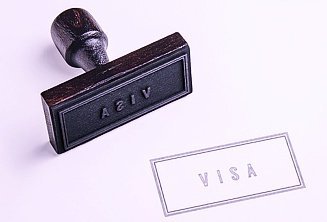
Obtaining Sudan visas is not always straightforward. There are two options:
This option covers the cost of the additional paperwork you will need to secure your Sudanese visa by either of these routes. The price is payable in US Dollars cash to our local partners in Sudan after you arrive.
There is then an additional visa fee, payable at the immigration desk in the airport. This fee is US$100 for most nationalities, and US$150 for US citizens.
It is best to allow one month before you arrive to complete all the registrations. We will need a scanned copy of your passport. The process can sometimes be completed more quickly, but this cannot be relied upon.
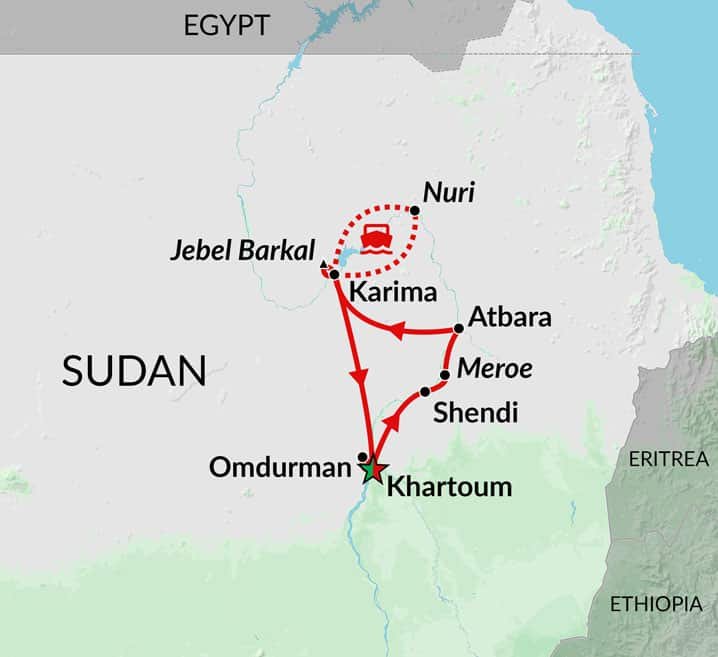
The hotels and accommodations listed below are the ones we most often use on this tour. From time to time we may exchange these for similar properties at the same level. In general, specific hotels cannot be guaranteed on our group tours, but you may select your preferred options if you are booking a tailor-made trip.
We use good quality hotels rated at the Sudanese 4-star level in Khartoum as well as Nubian houses and tented camps in the rest of Sudan. Upgrades to higher level hotels in Khartoum are available on request. All bedding is provided in the tented camps. Sleeping bags are provided at the Nubian house on the Soleb extension.
Hotel accommodation is based on twin or double en-suite rooms with air conditioning. We will endeavour to give all couples a private double room. Single travellers should budget to pay an additional single room supplement if a same-sex room share is not available.
Our trips feature a mix of different transport options. We want you to feel like you’re really experiencing the country you’re travelling through, but at the same time we want you to finish journeys refreshed enough to enjoy the next stage of the tour. Our routes in Sudan, available public transport options and the distances involved mean that we use private vehicles such as Toyota Landcruisers (max 4 passengers / vehicle) or Toyota Hilux (max 3 passengers / vehicle) hroughout this tour.
This tour includes an airport meet and greet and transfer service on the first day of the tour. Our rep. will be holding an Encounters Travel signboard or have your name displayed for easy identification. If you can't find our representative, our emergency contact numbers will be provided on your tour confirmation voucher.
A departure transfer to the airport is also included at the end of the tour. Please check the tour itinerary and your flight times; most international flights leave Khartoum in the early hours of the morning, and as a result if you have upgraded the hotel in Khartoum to 4 or 5-star we normally only include a day-use room in the Khartoum hotel for your final day. A full night is included in the standard 3-star hotel If you will need a full night in the hotel and have upgraded the accommodation, a supplement will generally need to be added.
No refund is available on missed transfers or portions of your trip owing to incorrect flight details being provided or delayed flight arrival. Any additional cost incurred in order to meet up with your group is at your own expense.
If your flights arrive/depart before/after the tour starts/ends then we will be very happy to arrange additional accommodation and airport transfers for you. We will aim to book these in the same hotel as the main tour, though this will be subject to availability (upgraded hotels are also available on request). If you do not book your additional accommodation through us, then our arrival/departure service is not included and you will need to make your own airport transfer arrangements.
Arrival Procedure:
There are often long queues at the immigration desks, and there can be further delays if you are getting your “visa on arrival” (see Passports and Visas). After passport control proceed to baggage reclaim where there can be more long waits. After you have your luggage you will be asked to show your bag receipts (normall stuck to your boarding pass) and you may also have your bags manually checked by the airport officers. This is quite normal, and they will just be checking that you are not bringing anything illegal in Sudan into the country (eg. alcohol, pornographic magazines etc. (please note that some normal magazines you may carry may have some images of undressed public characters…and this may be considered inappropriate). If anything undesirable is found, it will be confiscated and not returned.
Our representative will then meet you just outside the glass door with an Encounters Travel signboard or your name displayed.
We want to give you as much flexibility as possible when it comes to booking your holiday with us. So, to take account of people with varying travel plans, we don’t include your international flights in the main tour price. We are however very provide suggestions for flights to go with your tour. Please contact us with your preferred dates and departure airport and we’ll give you a selection of airlines, times and fares to choose from.
Your airport arrival & departure transfers are included on the first and last days of the tour. Our Sudan tours start and finish at Khartoum airport (KRT).
We are committed to being a small group operator, as we feel this gives everyone in the group the best chance to get to know their fellow travellers and to hear and make the most of their guide. There’s no point in us providing great guides if you’ve got to peer over 30-40 shoulders to see them! So, we won’t ever put you in a 50-seater coach with 49 other people and just one guide. Instead, we set our Sudan group departures to have a maximum of 18 travellers.
At Egypt Uncovered we aim to only use local Sudanese guides and reps. We feel this gives you the best experience of the country and the sites you are seeing. Please check our website for more details and profiles of some of our most famous guides.
The tour price does not include permits and entrance fees to the National Museum and archaeological sites visited during the tour. To cover these, plus photo permits and local passport registration, a fee of US$250 per person will be collected in Khartoum at the start of the tour. Please ensure you have 250 US Dollars in new bills, ideally small denominations ($10/$20). Please also bring 2 passport photos with you which are needed to complete the permits.
Camera Fees & Permits:
Visitors are required to obtain a permit for photography of any kind, and we will obtain this for you. The permit will stipulate where you can or cannot take photos. There are strict restrictions on taking photographs; photography of military areas or personnel, bridges, broadcast stations, public utilities, slum areas and beggars is strictly prohibited. Always ask prior to taking photos.
Video cameras incur an additional fee of US$20 for each archaelogical site and must be obtained in advance - please let us know several weeks before arrival if you wish to bring a video camera.
Bahsis (bahk-sheesh) or tips are commonplace and customary in Sudan. Wages for service staff in Sudan are very low and tips are a necessary supplement to meagre incomes.
Having said that, tipping is always optional, and the amounts paid should reflect the service level provided, and your personal budget. We are often asked for advice on common amounts, and for assistance with tipping. Some suggested guidelines are given below.
Restaurants and taxis: Local markets and basic restaurants - leave the loose change. More up-market restaurants we suggest 5% to 10% of your bill.
Local guides: Throughout your trip you may at times have a local guide in addition to your tour guide. We suggest USD 2 per person per day for local guides.
Drivers: You may have a range of private drivers on your trip. Some may be with you for a short journey while others may be with you for several days. We would suggest a higher tip for those more involved with the group however USD 2 per person per day is generally appropriate.
Tour Guides: To answer your next question. . . as a guideline we suggest for your tour guide between USD 25-40 per person for the entire tour, but ultimately, its up to your satisfaction with their service and your budget. You should not feel pressured to tip any particular amount.
You should ensure you are fully insured for medical emergencies including emergency evacuation and repatriation.
Recommended vaccinations and other health protection measures vary according to the country you are visiting and where you are travelling from. We recommend you contact your GP/medical practitioner or a travel clinic for current information on vaccinations needed for your destination. You should ensure that you are up to date with vaccines and boosters recommended for your normal life at home, including for example, vaccines required for occupational risk of exposure, lifestyle risks and underlying medical conditions. In addition, additional courses or boosters normally recommended for the countries in this region are:
South Africa: Additional vaccinations: Hepatitis A. Malaria map. Yellow Fever certificate: Required if arriving from or having transitted through an infected area.
Namibia: Additional vaccinations: Hepatitis A, Tetanus, Typhoid. Malaria map. Yellow Fever certificate: Required if arriving from an infected area.
Botswana: Additional vaccinations: Hepatitis A, Tetanus, Typhoid. Malaria map. Yellow Fever certificate: Required if arriving from or having transitted or travelled through an infected area.
Zimbabwe: Additional vaccinations: Hepatitis A, Tetanus, Typhoid. Malaria map. Yellow Fever certificate: Required if arriving from or having transitted through an infected area.
Zambia: Additional vaccinations: Hepatitis A, Tetanus, Typhoid. Malaria map. Yellow Fever certificate: Required if arriving from or having transitted through an infected area.
Malawi: Additional vaccinations: Hepatitis A, Tetanus, Typhoid. Malaria map. Yellow Fever certificate: Required if arriving from or having transitted through an infected area.
Tanzania: Additional vaccinations: Diphtheria, Hepatitis A, Tetanus, Typhoid. Malaria map. Yellow Fever certificate: Required if arriving from or having transitted through an infected area.
Kenya: Additional vaccinations: Diphtheria, Hepatitis A, Poliomyelitis, Tetanus, Typhoid. Malaria map. Yellow Fever certificate: Required if arriving from an infected area.
Uganda: Additional vaccinations: Diphtheria, Hepatitis A, Tetanus, Typhoid, Yellow Fever. Malaria map. Yellow Fever certificate: Required if arriving from an infected area.
Sudan: Additional vaccinations: Diphtheria, Hepatitis A, Tetanus, Typhoid, Yellow Fever. Malaria map. Yellow Fever certificate: Required if arriving from or having transitted through an infected area. A certificate may also be required for those departing Sudan.
Morocco: Additional vaccinations: Hepatitis A, Tetanus, Typhoid. Malaria not normally present. Yellow Fever certificate not required.
The above information can change at short notice. For up to date health information & vaccination requirements we recommend that you contact your medical practitioner or a travel clinic.
Malaria: Vaccinations are not available against Malaria, which is a disease transmitted by mosquitoes that can be very serious and sometimes fatal. You should avoid mosquito bites by covering up bare skin with clothing such as long sleeves and long trousers and applying insect repellents to exposed skin. When necessary, sleep under a mosquito net. Mosquitoes are most active during and after sunset. You should consult with your GP/medical practitioner/travel clinic about the most appropriate malaria prophylactic medication to take for the regions you are visiting.
Yellow Fever: This disease is spread by infected mosquitoes that bite during the day. A Yellow Fever Certificate of vacinnation may be required as a condition of entry depending on which country you are arriving from, or that you have travelled or transitted through recently (including connecting flights with stopovers of over 12 hours). You can view a World Health Organisation map of areas where the virus is present in monkeys and therefore a potential risk to humans. Please ensure you have this certificate with you and to hand if necessary.Please inform us of any pre-existing conditions such as diabetes or asthma and any prescription medicine you may be taking. We also need to know about any food allergies or physical disabilities that you may have.
Passports should be valid for at least six months after your departure from the country, have at least 2 clear pages, and no Israeli stamps. Please do not bring an almost full or almost expired passport. Visa arrangements are the responsibility of the traveller, and requirements are subject to change by the local authorities.
Obtaining Sudan visas is not always straightforward. There are two options:
For both of these options you will need to make an additional payment in US Dollars cash to our local partners in Sudan after you arrive for the provision of the paperwork required to process your visa. Please check the Options section for details or speak to your travel consultant for more details.
Please send us a scanned or photographed copy of the identity pages of your passport as soon as possible after you have booked so that we can obtain the necessary paperwork for you.
The official languages in Sudan are Arabic and English, according to the 2005 constitution. English is not widely spoken except by officials and hospitality workers. In contrast to many places in the world, it is the older generations that tend to speak the better English.
Sudan is an Islamic nation, and the government has imposed a form of Sharia law. Alcohol and drugs are forbidden, as is homosexuality. You should assume that any foreigner will be treated as a local, and dealt with accordingly; in many cases, given a jail sentence of several months and a whipping, the minimum being forty lashes. Do not in any circumstances, show images/statues/figures etc. of the prophet Muhammad.
Sudanese women tend to wear very conservative clothing and cover their heads, so out of respect, foreign women would be wise to do the same, even if they observe other tourists who do not respect this custom. Men should wear long trousers, not shorts. If in doubt, play it safe and cover up.
The Sudanese do not expect foreigners to adhere to Ramadan, the holy month of fasting, but it would be tactless to eat, drink or smoke in public.
The Sudanese Pound (SDG) = 100 piasters. Notes are in denominations of SDG50, 20, 10, 5, 2 and 1. Coins are in denominations of 50, 20, 10, 5 and 1 piasters. The Sudanese Pound has replaced the Sudanese Dinar, which was phased out on 30 June 2007. 1 Sudanese Pound = 100 Sudanese Dinars = 1,000 old Sudanese Pounds.
Please note that credit cards and debit cards are NOT currently accepted in Sudan.
The best place to exchange money is at the airport, the rates are often much better than the rates at hotels. Currency should be exchanged only at official bureaux de change and banks, and receipts should be retained. There are severe penalties for changing money on the black market. Please note that only new US Dollar bills are accepted in Sudan - old or worn bills will not be accepted.
Luggage: To facilitate easy transport of everyone luggage in the vehicles, we ask that you bring soft luggage with you, and not rigid suitcases. You should also bring a small daypack/bag to take out during the day. Your main luggage will normally be left in your accommodation during your sightseeing trips – you will not need to carry it far, and there are nearly always hotel porters to assist.
Luggage limits: Again to ensure space and comfort in the vehicles you will be travelling in, we request that you bring no more than 15kg of main luggage on this tour. For hand-luggage most airlines allow between 5kg and 10kg and we ask that you try to restrict yours to 5kg max.
Clothing: Sudan’s climate ranges from hot and dry in the north to humid and tropical in the equatorial south. October to April is the best time to visit. Temperatures range from 30-38C during the day in October/November and March/April (12-18C at night), and 25-30C in December/January/February (5-10C at night). The summer months can go well over 40C though we don't generally run tours during this period. Dust storms (the haboob) blow occasionally from July to August and November to January. You will need clothing for very hot days but you also need warm clothes for the evenings and nights when the temperature can drop significantly, particularly in the deserts.
Sudan is largely Muslim and operates a version of Sharia law. Modesty rates highly in Sudan, especially for women, so please ensure clothes are loose fitting and not too revealing. Visiting women not expected to wear a veil or cover their heads but we suggest you bring a headscarf or sunhat with you anyway as it is often welcome in the desert and hot sun. Neither men or women should wear shorts.
Other items: Bedding (sheets, blankets, pillow) is provided in the Meroe desert camp but we recommend bringing a light sleeping sheet or sleeping bag liner for comfort all year round (even with the best efforts, sand can find its way pretty much everywhere). We also recommend you bring a sun hat, sunscreen, sunglasses, a basic first aid kit, toiletries, money belt, small torch, camera & charger.
Nimitti: Between February and the end of April there may be lots of “nimitti” which are small, harmless, but extremely annoying flies in the north (Tombos, Soleb area) – these flies are the ones that make the pollination of the palms. We will provide fly nets to wear over the face, and the tour leader will recommend to wear long sleeved tops.
We run regular small-group departures on this tour starting on Thursdays between October and April. All departures are guaranteed to run with a minimum of 4 travellers. If there are only 2 or 3 travellers per date we can still run the tour but an extra supplement will be due. Departure dates and prices are listed on our website and on a separate dates & prices sheet available on request.
Private and tailor-made tours are also available on any date; please contact us for details and prices.
If you would like to book a place on this tour, please complete the online reservation form on our website (via the Dates & Prices tab on the tour page). You can pay your deposit or full balance online, or just hold a reservation if you prefer. We will then contact you with more details about how to complete your booking. Payments may be made by debit or credit card (subject to a card processing fee), or by making a bank transfer or posting us a cheque/bank draft. Full details will be provided in your booking confirmation email. Please contact us if you would like any more information or have any questions before making a booking.
Travel insurance is compulsory on all of our tours and needs to cover personal accident & liability, medical expenses and repatriation, travel delay & abandonment. We also strongly recommend that you take out cover against cancellation and lost/stolen baggage. Personal medical insurance does not normally provide sufficient cover and is generally not suitable for travel on our tours. You will not be able to join your tour if you have not provided us with details of your insurance or if you arrive without cover in place (no refunds will be due in this event). More information...
You may arrange your own insurance, or you can take advantage of a comprehensive policy that we can arrange for you through Endsleigh Insurance which has been designed to be suitable for our tours. The policy is available to travellers of all nationalities and you do not need to live in the UK to take out the policy. For full details of cover provided, prices and to apply for one of our policies, please complete travel insurance application form.
Note: Any country that borders the Mediterranean is considered as 'Europe' for the purposes of travel insurance (including Turkey, Israel, Egypt and Morocco). If you are doing a tour that visits one country in 'Europe' and one that is 'Worldwide' (for example, an Egypt and Jordan tour), then you need a 'Worldwide' policy. When completing the form you should enter your travel dates including any extra days involved in overnight flights or connecting travel between your home and the tour. Our policies are not able to cover any extra time or activities other than your tour and options booked with us and your travel to & from home.
If you plan to arrange a hot air balloon flight locally, or do some scuba diving during your tour, you should check the small print in your policy to make sure these are covered (these are covered in our policy). Please also check the maximum altitude that you will be reaching and that full cover including emergency evacuation is provided up to this altitude.
IMPORTANT: We must have your travel insurance details (policy number and type of insurance) before you depart or you may not be allowed to join the tour. If you haven't told us already, please let us know the details when you can. You should take a paper copy of your insurance policy with you as you may be asked to show this at the start of the tour.
We are a UK registered company and an ABTA Member (Y4447) and you can be confident when booking with us that your money is safe and protected. Financial failure insurance is provided through Affirma to protect all customers for the land portion of their tour.
Please see our website or booking conditions for more information.
It is impossible not to have an impact on the local environment, cultures and eco-systems when you travel. However, it is very possible to try and ensure that these impacts are as limited, or positive as possible. We are committed to ensuring that we try to leave our host countries in a better state than we found them and encourage and assist our travellers to help us with this.
The following are a few simple tips that require very little effort on your part but which will help ensure that any effect you have on the locations you visit is positive rather than negative.
All porters are employed and equipped following guidelines set by the International Porter Protection Group (IPPG).
You can stay in touch with us online by following us on Facebook and Twitter. We post updates on relevant travel news in our destination countries, special offers and discounts and other interesting travel related news and information.
www.facebook.com/EgyptUncovered
www.twitter.com/encounterstravl (yes, without the 'e')
It is important when considering and preparing to travel anywhere in the world that you have a good understanding of the country you are visiting, its laws and customs, and the possible risks and situations that may occur. This includes specific risks related to your itinerary (eg. does it involve water & can you swim, are you fit enough for the activities included), as well as more general risks such as terrorism and natural disasters.
General details and links to more information about health risks, visa requirements, money, and travel insurance are given in these tour notes. We recommend that you re-read all these before your departure as well as the small print of your travel insurance policy so you know exactly what is covered and what is not.
You should take copies of your important travel documents with you and ideally also store them online securely as a backup. Make sure that you have given us your emergency contact details and told that person where and when you are travelling. Ensure you take enough money with you and that you have access to emergency funds.
Finally, you should read through and stay updated with the current official government travel advice for your destination. We are registered partners with the UK Foreign Office's 'Travel Aware' campaign which provides further useful and invaluable information.
| Start Date | End Date | Price (P/P) | Offer Price | Note | |
|---|---|---|---|---|---|
| 13 Oct, 2023 | 22 Oct, 2023 | A$5790 | - | Karima-Meroe | Book now |
| 27 Oct, 2023 | 05 Nov, 2023 | A$6330 | - | Karima-Meroe | Book now |
| 10 Nov, 2023 | 19 Nov, 2023 | A$6330 | - | Karima-Meroe | Book now |
| 08 Dec, 2023 | 17 Dec, 2023 | A$6115 | - | Meroe-Karima | Book now |
| 28 Dec, 2023 | 06 Jan, 2024 | A$6435 | - | Meroe-Karima | Book now |
| 12 Jan, 2024 | 20 Jan, 2024 | A$6115 | - | Karima-Meroe - 9 days | Book now |
| 26 Jan, 2024 | 04 Feb, 2024 | A$6330 | - | Karima-Meroe - 10 days | Book now |
| 16 Feb, 2024 | 24 Feb, 2024 | A$6330 | - | Karima-Meroe - 9 days | Book now |
| 01 Mar, 2024 | 09 Mar, 2024 | A$6330 | - | Karima-Meroe - 9 days | Book now |
| 15 Mar, 2024 | 23 Mar, 2024 | A$6330 | - | Karima-Meroe - 9 days | Book now |
| 19 Apr, 2024 | 27 Apr, 2024 | A$6115 | - | Karima-Meroe - 9 days | Book now |